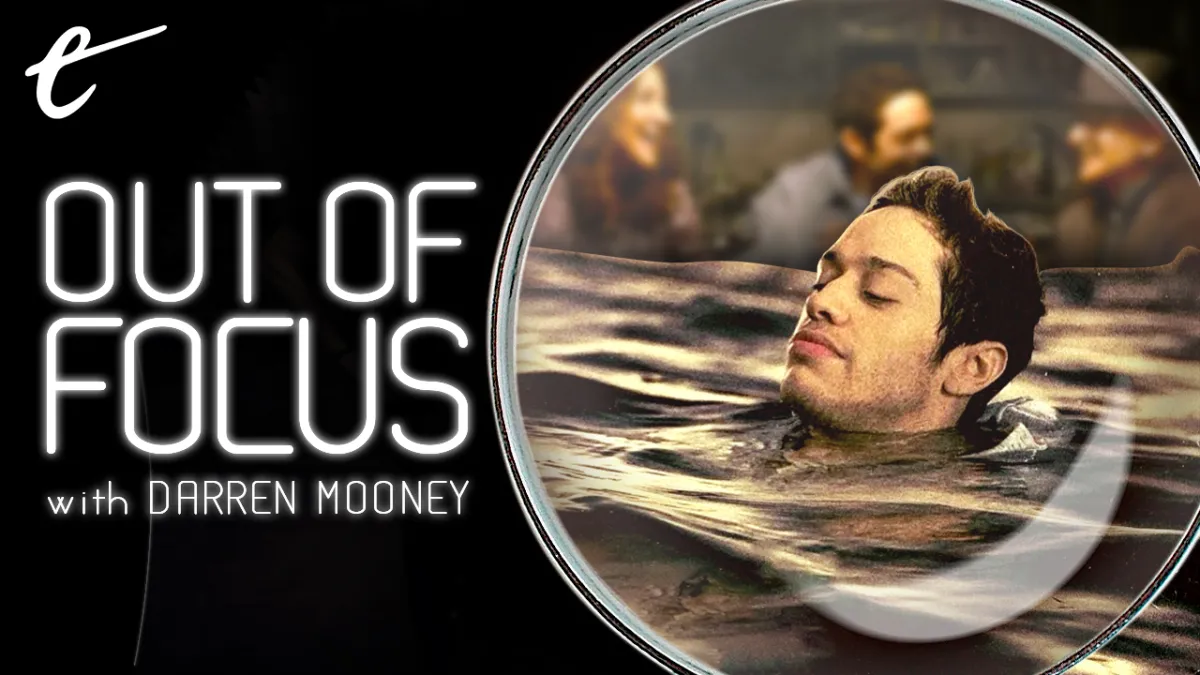Pete Davidson has long been the subject of public fascination. It can often be difficult to see through the dense mythology that has accrued around the young performer, who has arguably attained a public stature somewhat disproportionate to his career to date.
A promising young comedian, Davidson landed a small role in the Judd Apatow movie Trainwreck. Star Bill Hader recommended him to Lorne Michaels, which led to a place on Saturday Night Live. However, unlike many of the show’s breakout performers, Davidson didn’t establish himself through memorable impressions, recurring characters, or as a writer. Davidson seemed to mostly play himself, anchoring the “Weekend Update” section of the show.
In that position, Davidson was frequently the subject of his own coverage — the relationships with other beautiful celebrities, the struggles with addiction, and even speculation about certain parts of his anatomy. It often seemed that Davidson’s celebrity was fueled by nothing so much as Davidson himself, a self-perpetuating cycle that could feel like a piece of performance art on modern ideas of fame.
There was an extent to which this overshadowed much of the show around him, to the point that Davidson himself had become Saturday Night Live’s “must-see character.” Davidson has acknowledged that this was frustrating to him as a performer. “Suddenly you’re in this zeitgeist and that has nothing to do with the work,” he recently told Variety. “And that’s a really shitty feeling.” However, this was just the beginning of the comedian’s hall of mirrors.
Davidson would reteam with Apatow for The King of Staten Island, a dramedy that was loosely inspired by details from Davidson’s own life, most notably the fact that his father was a first responder who died on 9/11. Although Davidson ostensibly plays a fictional character named Scott Carlin, it is quite apparent that the bulk of the film is drawn from the performer’s real life. As he conceded in press for the movie, “All those experiences are definitely real.”
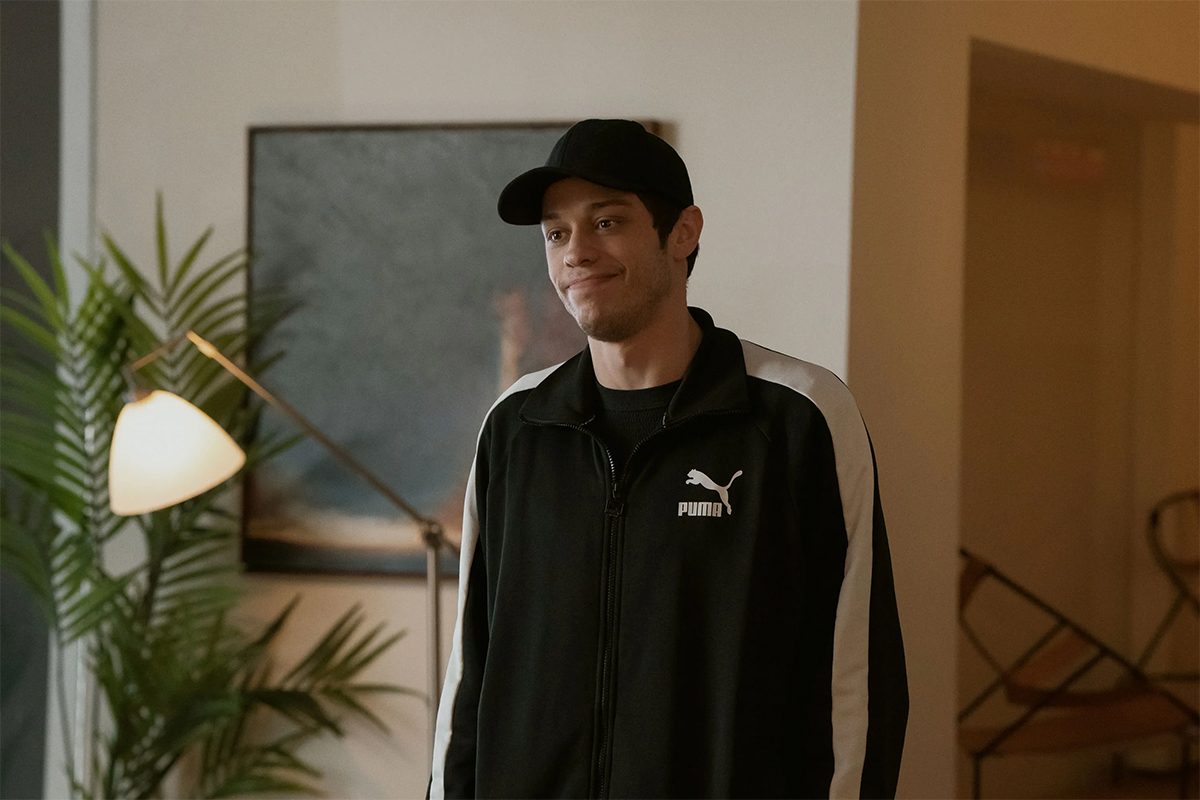
The King of Staten Island is recognizable as a late Apatow work, the product of a comedic filmmaker transitioning away from his reputation for irreverent comedy. It isn’t quite as self-serious as dramatic works from Apatow’s comedic contemporaries like Jay Roach’s Bombshell or Adam McKay’s The Big Short. However, it is close in tone to Apatow’s Funny People, the similarly “vaguely autobiographical” movie he made with Adam Sandler in 2009.
The King of Staten Island is crushingly earnest. It runs just over two and a quarter hours. Davidson plays a young man searching for direction, finding it through acknowledging the heroism of the firefighters who worked with his father. Along the way, the character finds some peace in his troubled life. Given the foregrounding of the autobiographical elements in press, The King of Staten Island felt like an attempt to mythologize the 26-year-old comedian.
Bupkis, Davidson’s new streaming series on Peacock, does something similar. It goes further than The King of Staten Island, with Davidson dropping any pretense of distance from his character by playing a version of himself. The show exists in parallel with The King of Staten Island, with Davidson’s fictionalized mother Amy (Edie Falco) boasting that she was played by Marisa Tomei. The series is co-showrun by Dave Sirus, who co-wrote the film.
Bupkis is firmly wired into the idea of Pete Davidson as a phenomenon. The series opens with Davidson googling himself and being horrified by the results. His relationship with fame is a recurring fixation, from edit wars over his Wikipedia page to car chases involving the paparazzi. The show is set within the world of celebrity, with cameos from figures as diverse as Al Gore, Jon Stewart, Machine Gun Kelly, John Mulaney, Ray Romano, and J.J. Abrams.
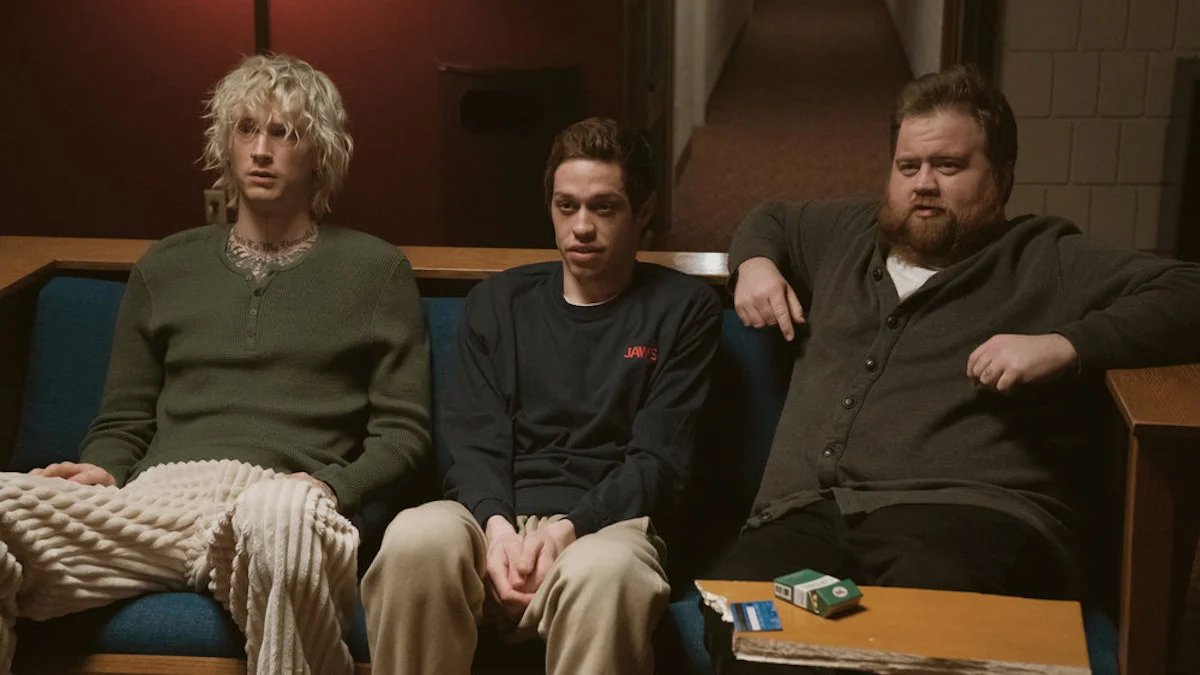
However, Bupkis is a much more comfortable fit for the performer than The King of Staten Island. There are multiple reasons for this, but a large part of it is down to the format. Davidson is a much more compelling figure to examine through the lens of a half-hour sitcom than as the subject of a feature-length inspirational dramedy. After all, he’s a young comedian from “the forgotten borough” — not the sort of figure who typically justifies a 136-minute biopic.
Bupkis belongs to the long tradition of sitcoms headlined by celebrity comedians. In some cases, as with The Dick Van Dyke Show or The Mary Tyler Moore Show, the lead’s name was simply in the title and they played a completely fictional character within the show. However, following the success of Seinfeld, it has become more common for sitcoms to star performers as fictionalized versions of themselves: Louis CK on Louie, Larry David on Curb Your Enthusiasm, Dave Burd on Dave, etc.
As such, watching a sitcom built around a young comedian doesn’t feel quite as surreal as watching a $35 million movie about a performer whose personal life has overshadowed their career to date. There’s a casualness to the half-hour format. Seinfeld has often been described as a “show about nothing,” although both Jerry Seinfeld and Larry David dispute that. Still, given that these low-stakes sitcoms tend to run for hundreds of episodes, they feel less urgent and self-important than feature films.
By its nature, a movie seems to carry a great deal of importance. There is an unspoken assumption that a film is documenting some of the most important events in the lives of its characters. Even naturalistic films like Jeanne Dielman, 23 quai du Commerce, 1080 Bruxelles tend to build to profound climaxes. Beyond that — fairly or not — television has long been considered more disposable than film and only recently gained comparable prestige.
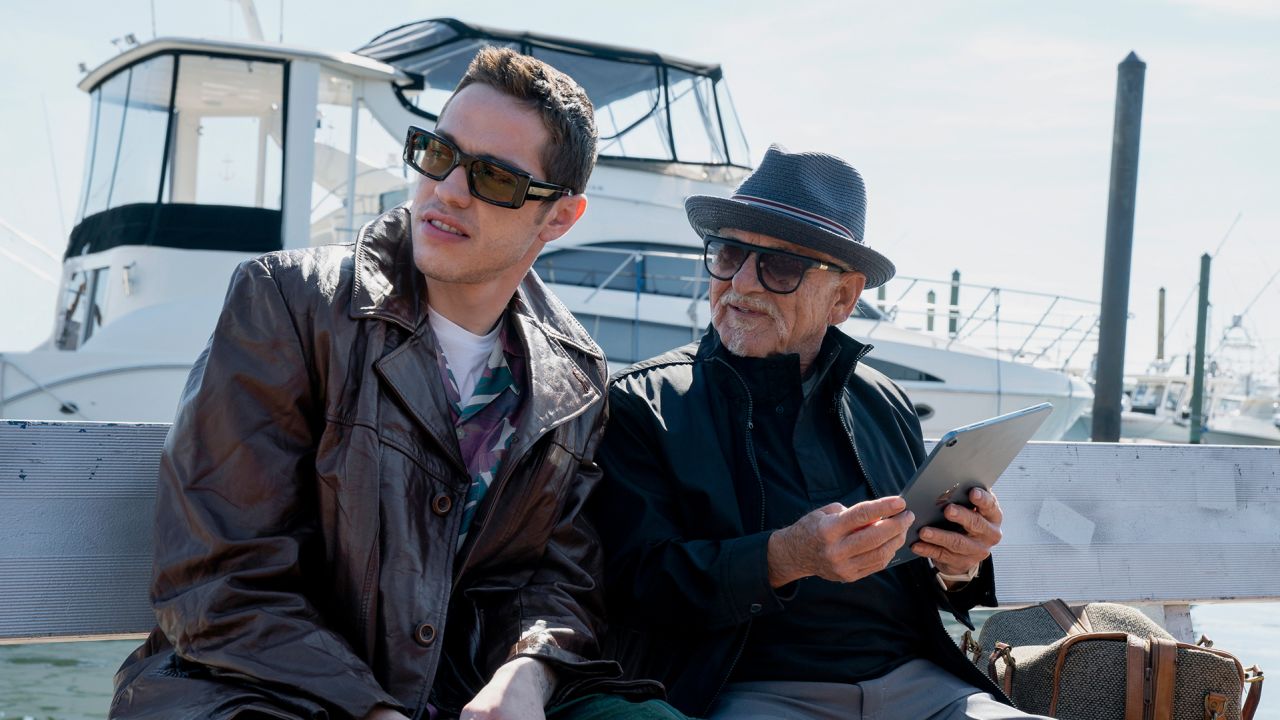
Bupkis works better than The King of Staten Island because it lends itself to this format. Most of the season is given over to the episodic structure of classic sitcoms.The cast wander into a set of bizarre situations with surprisingly low stakes. This isn’t the stuff of grand mythology; this is the simple business of living a life. It’s all, as Stacy Keach states at the start of each episode, “bupkis.” Davidson isn’t an inspirational story; he’s just a guy stumbling through life.
This is most obvious in how the show approaches the subject of Davidson’s father. The passing of Davidson’s father was central to The King of Staten Island. In the film, Scott’s mother Margie (Marisa Tomei) strikes up a relationship with another firefighter named Ray (Bill Burr). This forces Scott to work through the feelings that he repressed on the passing of his father. He eventually finds himself doing odd jobs at his father’s old firehouse.
In contrast, the show approaches this tragedy much less directly. In the second episode, “Do as I Say, Not as I Do,” Davidson spends time with his Uncle Tommy (Bobby Cannavale). This prompts memories of Tommy’s wedding, which took place in the aftermath of 9/11. The tragedy is acknowledged. However, it is not framed as a character arc that can be resolved. It’s just something that happened. Life must go on, even without tidy closure.
Bupkis largely avoids saccharine profundity, at least in its first seven episodes. Instead, the show offers high-concept adventures. In “Magic Moment,” Davidson reacts to news of his grandfather’s (Joe Pesci) terminal diagnosis by organizing a special evening that quickly goes awry. In “Crispytown,” Davidson’s trip to Florida to secure a role in the new Fast & Furious movie gets swept up in the insanity of an eccentric local named Crispy (Simon Rex).
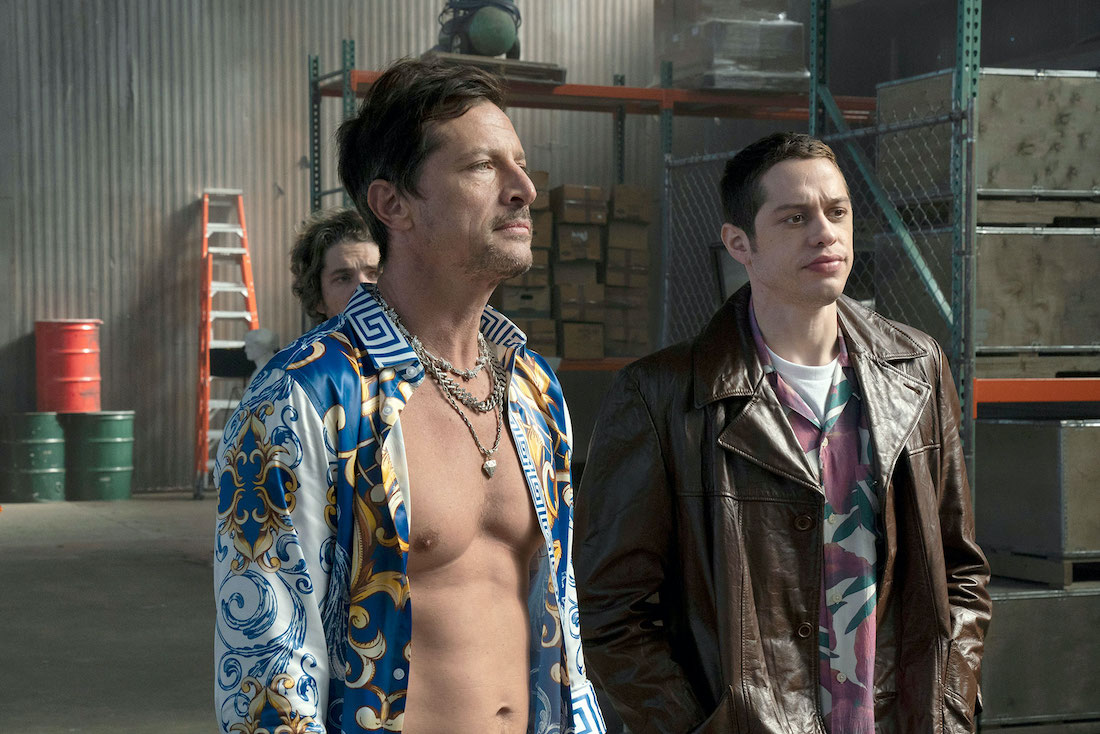
In “Picture,” Davidson tries to track down the troll who keeps resetting his picture on Wikipedia. In “For Your Amusement,” Davidson fixates on the idea of becoming a father and so adopts a small child (Delaney Quinn) for a day, only for the situation to quickly escalate outside of his control. In “ISO,” Davidson journeys to Canada to film a scene with Brad Pitt, only to discover that he will be working with Pitt’s lookalike, Devon Leech (Rob O’Malley).
These sitcom misadventures work well in isolation. They could easily be retooled as episodes of Curb Your Enthusiasm or even subplots for Joey (Matt LeBlanc) on Friends. However, there is also something clever in how Bupkis ties all this together. In the season’s final two episodes, Bupkis points out that these sorts of adventures aren’t really healthy. They might reflect the happy-go-lucky structure of classic sitcoms, but they take a toll.
Towards the end of the season, Davidson confronts the reality that these misadventures represent a downward spiral. The show weaponizes the mundanity of the sitcom format, counting on the audience being inured to the absurdity that tends to power these stories. It becomes an exploration of how the sort of fame that gives a performer like Davidson their own half-hour sitcom can also profoundly warp their sense of reality. More than that, it does so with the audience’s expectations. This is just how sitcoms work, right?
In the show’s cold open, Davidson accidentally ejaculates on his mother when she decides to visit the basement while he is watching virtual reality porn. This is a freaky moment, but it is also a sitcom premise. In the aftermath, Davidson is most unsettled by how his mother never acknowledges the emotional and psychological reality of the punchline to that absurd setup. As the show progresses, the contrast between the surreality of the events and the characters’ reluctance to directly confront it becomes the point of the exercise.
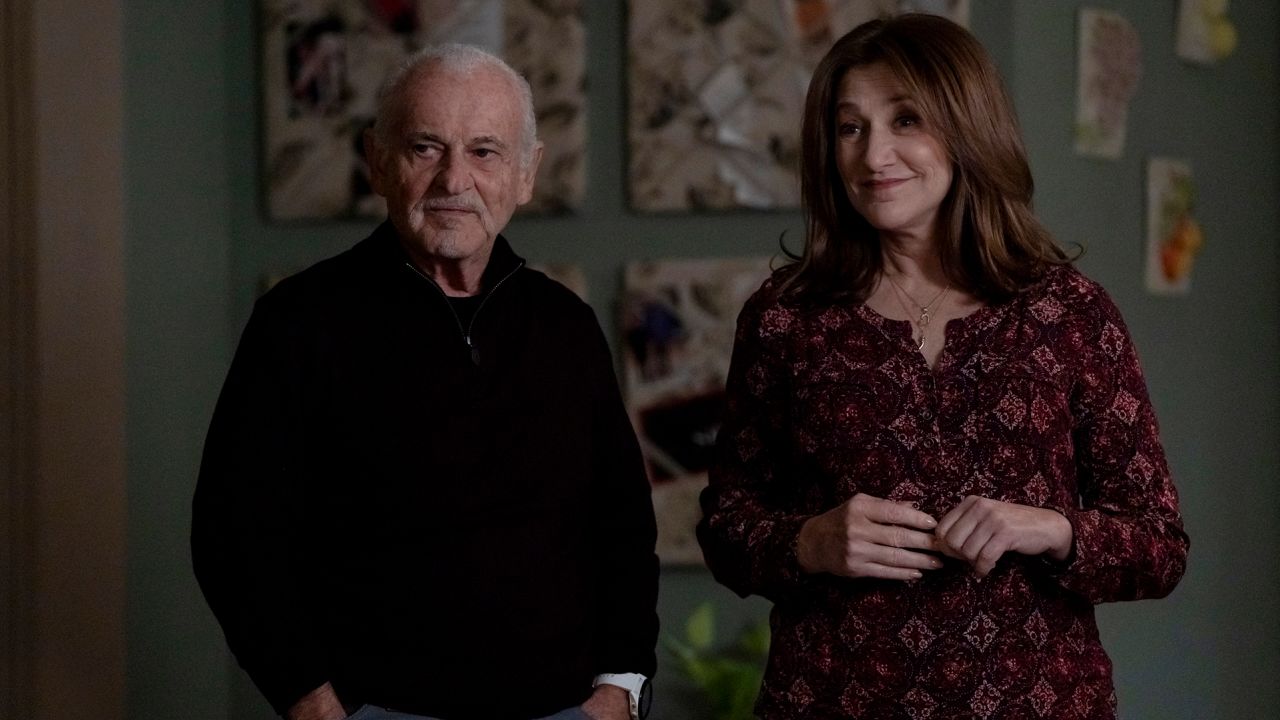
There is an argument to be made that, while films are the stories of characters undergoing change, television has traditionally been about characters incapable of change. The Sopranos, generally seen as the first show of the modern golden age, was in some ways about this. Tony Soprano’s (James Gandolfini) refusal to change his destructive habits was both a logical extension of the television format and a grand tragedy. Fittingly, Bupkis shares a second lead with The Sopranos in Edie Falco.
“Your life is fascinating,” John Mulaney tells Davidson. “I don’t know what it’s like to live it, but goddamn do we have fun watching it.” He’s talking about the paparazzi, but he could also be discussing the show’s sitcom structure. The standard structure of the sitcom, with its madcap premises, heightened reality, and inevitable reset, serves as an effective metaphor for Davidson’s cycles of self-destruction. The classic sitcom doesn’t lend itself to progress or growth, but instead to repetition and absurdity. It’s a shrewd use of a classic template.
Tellingly, Bupkis struggles when it aspires to the grammar of the prestige television that superseded the traditional sitcom. “Show Me the Way,” the season finale, is shot largely in black and white and leans heavily into clumsy earnestness. It is too sharp and self-serious a swerve for the series, and it derails the show around it. Bupkis works best when it embraces its sitcom heritage and uses that to tell a profoundly human story about its subject.

